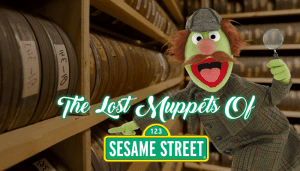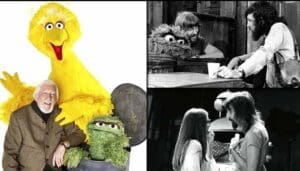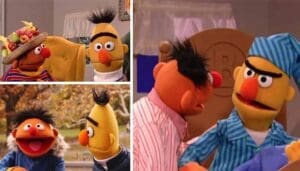
When you think of the quintessential scientific pair on television, who comes to mind? Perhaps it’s a pair of humble yellow and red figures known as Dr. Bunsen Honeydew and his frequently flustered assistant, Beaker. They’ve been blowing things up, both literally and metaphorically, in the world of Muppet Labs for decades. Let’s take a deep dive into their history, their impact on pop culture, and why they remain such endearing characters.
The Origin of the Characters
The concept of Muppet Labs was introduced to audiences during the first season of The Muppet Show, which aired from 1976 to 1981. Created by the legendary Jim Henson, the show featured a variety of characters, but it was the laboratory sketches featuring Dr. Bunsen Honeydew that captured the imagination of audiences with a flair for science fiction comedy.

Dr. Bunsen Honeydew made his debut in the first season of The Muppet Show in 1976. Named humorously after the honeydew melon, Bunsen was characterized as a bald, bespectacled scientist, and his physical appearance seemed to be inspired by both Henson’s peculiar genius and typical mad scientist tropes. His role as the head of Muppet Labs was to introduce new, often absurd gadgets and inventions with a signature blend of optimism and naiveté.

Enter Beaker, who joined the fray in the second season as Bunsen’s lab assistant. Beaker’s character was a perfect foil to Bunsen: tall, thin, with wild red hair, and a vocabulary mostly limited to “Meep! Meep!” Introduced in 1977, Beaker quickly became a fan favorite due to his expressive, wide-eyed reactions to the various mishaps and dangers brought on by Bunsen’s experiments. Despite the chaos surrounding him, Beaker remained loyally by Bunsen’s side—an endearing quality that resonated with viewers everywhere.
Evolution Over the Years
Throughout their tenure on The Muppet Show, Bunsen and Beaker consistently delivered some of the most memorable and hilarious segments. Their sketches invariably began with Bunsen demonstrating a supposed breakthrough invention, such as edible paper clips or a gorilla detector, only for things to spiral into chaos, much to poor Beaker’s dismay. This slapstick comedy paired with clever writing was a staple of their charm.
Post-The Muppet Show, the pair continued to fascinate audiences as they appeared in various Muppet movies and shows, adapting to each new format while retaining their core comedic style. In The Muppet Movie (1979) through to newer films such as Muppets Most Wanted (2014), Bunsen and Beaker maintained their reputation as the science duo prone to hilarity and havoc in equal measure.
Analyzing the Humor
The humor derived from Bunsen and Beaker’s sketches is multifaceted. For one, the dynamic between a wildly optimistic inventor and his hapless assistant is a timeless comedy trope. Bunsen’s cheerfully oblivious demeanor, coupled with the physical comedy of Beaker’s frantic panic, drives much of the humor.
Furthermore, their sketches often play with the idea of scientific progress and technology. Bunsen’s inventions frequently parody real-world scientific endeavors, offering a lighthearted critique of the sometimes uncritical glorification of technological advances. Through this, the characters appeal not just to children but also to adults who can appreciate the satirical elements woven into each segment.
Cultural Impact
Dr. Bunsen Honeydew and Beaker have left an indelible mark on popular culture, becoming iconic characters not only within the Muppet universe but beyond. They’ve been referenced in countless other shows, from The Simpsons to Family Guy, often representing the archetype of the whimsical, albeit dangerous, scientific inventor and his unfortunate assistant.
In education, Bunsen and Beaker are frequently harnessed as an engaging bridge to spark interest in STEM (science, technology, engineering, mathematics) fields. Their sketches, although exaggerated, offer a gateway for young minds to ponder the wonders and occasionally chaotic nature of scientific inquiry.
Character Development and Relationships
What has endeared Bunsen and Beaker to audiences for so long is their relationship, underpinned by loyalty, friendship, and humour. Despite the frequent chaos, Bunsen undoubtedly trusts and values Beaker, evident in their continued partnership. And despite Beaker’s frequent trepidation, there’s an unspoken understanding that Bunsen never intentionally puts him in harm’s way.
This relationship has grown over the years, subtly developing depth as the Muppets themselves have been reshaped and reimagined. In various interviews and secondary content, the creators have mentioned the camaraderie and loyalty between Bunsen and Beaker as fundamental traits.
Technological Adaptation
Over the years, Bunsen and Beaker have even adapted to technological advancements, appearing in online content and social media platforms in the digital age. Utilizing mediums such as YouTube and the official Muppets website, their sketches have reached new generations, showcasing their timeless appeal.
Their presence on platforms like Twitter, where they engage with fans and even comment on contemporary science topics with their signature humor, exemplifies how characters originally conceived in the golden age of television can remain relevant and beloved through strategic adaptation to new media.
Enduring Appeal
In a world that increasingly celebrates and critiques scientific innovation, Bunsen and Beaker provide a comedic lens through which we can observe the trials, triumphs, and occasional absurdities of the scientific world. They’ve endured by blending timeless slapstick with intelligent parody, creating a niche that resonates with fans across generations.
In conclusion, Dr. Bunsen Honeydew and Beaker’s history on The Muppet Show and beyond demonstrates the power of well-crafted characters to entertain, educate, and remain relevant far beyond their initial creation. Their antics remind us of the joy of discovery—complete with its mishaps—and the importance of friendship and loyalty in any endeavor. As long as there’s room for curiosity and laughter in the world, there will be a place for Bunsen and Beaker, the beloved icons of Muppet Labs.



